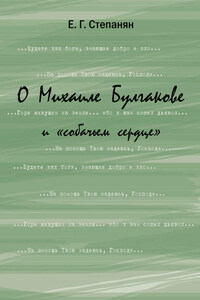CHAPTER I
THE DAWN OF A CENTURY OF DISCOVERY
Slackness of discovery during the struggles of the Republic and Empire – Seetzen's voyages in Syria and Palestine – Hauran and the circumnavigation of the Dead Sea – Decapolis – Journey in Arabia – Burckhardt in Syria – Expeditions in Nubia upon the two branches of the Nile – Pilgrimage to Mecca and Medina – The English in India – Webb at the Source of the Ganges – Narrative of a journey in the Punjab – Christie and Pottinger in Scinde – The same explorers cross Beluchistan into Persia – Elphinstone in Afghanistan – Persia according to Gardane, A. Dupré, Morier, Macdonald-Kinneir, Price, and Ouseley – Guldenstædt and Klaproth in the Caucasus – Lewis and Clarke in the Rocky Mountains – Raffles in Sumatra and Java.
A sensible diminution in geographical discovery marks the close of the eighteenth and the beginning of the nineteenth centuries.
We have already noticed the organization of the Expedition sent in search of La Pérouse by the French Republic, and also Captain Baudin's important cruise along the Australian coasts. These are the only instances in which the unrestrained passions and fratricidal struggles of the French nation allowed the government to exhibit interest in geography, a science which is especially favoured by the French.
At a later period, Bonaparte consulted several savants and distinguished artists, and the materials for that grand undertaking which first gave an idea (incomplete though it was) of the ancient civilization of the land of the Pharaohs, were collected together. But when Bonaparte had completely given place to Napoleon, the egotistical monarch, sacrificing all else to his ruling passion for war, would no longer listen to explorations, voyages, or possible discoveries. They represented money and men stolen from him; and his expenditure of those materials was far too great to allow of such futile waste. This was clearly shown, when he ceded the last remnants of French colonial rule in America to the United States for a few millions.
Happily other nations were not oppressed by the same iron hand. Absorbed although they might be in their struggle with France, they could still find volunteers to extend the range of geographical science, to establish archæology upon scientific bases, and to prosecute linguistic and ethnographical enterprise.
The learned geographer Malte-Brun, in an article published by him in the "Nouvelles Annales des Voyages" in 1817, gives a minute account of the condition of French geographical knowledge at the beginning of the nineteenth century, and of the many desiderata of that science. He reviews the progress already made in navigation, astronomy, and languages. The India Company, far from concealing its discoveries, as jealousy had induced the Hudson Bay Company to do, founded academies, published memoirs, and encouraged travellers.
War itself was utilized, for the French army gathered a store of precious material in Egypt. We shall shortly see how emulation spread among the various nations.
From the commencement of the century, one country has taken the lead in great discoveries. German explorers have worked so earnestly, and have proved themselves possessed of will so strong and instinct so sure, that they have left little for their successors to do beyond verifying and completing their discoveries.
The first in order of time was Ulric Jasper Seetzen, born in 1767 in East Friesland; he completed his education at Göttingen, and published some essays upon statistics and the natural sciences, for which he had a natural inclination. These publications attracted the attention of the government, and he was appointed Aulic Councillor in the province of Tever.
Seetzen's ambition, like that of Burckhardt subsequently, was an expedition to Central Africa, but he wished previously to make an exploration of Palestine and Syria, to which countries attention was shortly to be directed by the "Palestine Association," founded in London in 1805.
Seetzen did not wait for this period, but in 1802 set out for Constantinople, furnished with suitable introductions.
Although many pilgrims and travellers had successively visited the Holy Land and Syria, the vaguest notions about these countries prevailed. Their physical geography was not determined, details were wanting, and certain regions, as for example, the Lebanon and the Dead Sea had never been explored.
Comparative geography did not exist. It has taken the unwearied efforts of the English Association and the science of travellers in connexion with it to erect that study into a science. Seetzen, whose studies had been various, found himself admirably prepared to explore a country which, often visited, was still in reality new.
Having travelled through Anatolia, Seetzen reached Aleppo in May, 1802. He remained there a year, devoting himself to the practical study of the Arabic tongue, making extracts from Eastern historians and geographers, verifying the astronomical position of Aleppo, prosecuting his investigations into natural history, collecting manuscripts, and translating many of those popular songs and legends which are such valuable aids to the knowledge of a nation.









